Selected video of Plenary and Keynote Talks will be posted at IFAC YouTube Channel soon!
Plenary speakers
Prof. Dr. Richard F. Hartl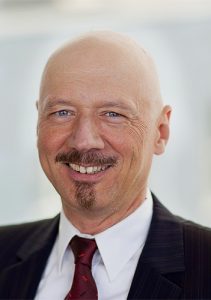
Topic: Solution approaches and incentive schemes in collaborative logistics planning
Abstract: Collaborative planning of production and logistics operations is important for modern supply chains, where firms are forced to overcome inefficiencies in order to stay in business. The spectrum of collaborative planning goes from simple coordination of plans to centralized decision making. This might require that actors are willing to reveal parts of their business information to coalition partners. Digitalization and emerging concepts like cloud manufacturing make it possible that data can be exchanged extremely fast and in secure environments. However, firms might still not be willing to reveal critical data like their existing customers, cost structure or capacities. Auction-based mechanisms have the advantage that agents are enabled to indirectly share preference values, without having to reveal critical data. Based on a computational study, we investigate problems, where such mechanisms are powerful, but we also show their limitations. Dealing with collaborative decision making, we have to take game theoretical aspects into account. We identify desirable properties of the proposed mechanisms and elaborate on incentive compatibility and side payments.
Richard Hartl was born in Vienna, Austria, in 1956. After studying Business Mathematics (Master and PhD) at the Vienna University of Technology, he worked for IBM Austria (1980) and was Post-Doc at the University of Toronto (1982). After his return to Vienna he was Assistant and Associate Professor from 1983 to 1993, where he obtained his “Habilitation” in 1987. From 1993 to 1995 he was Full Professor and Vice Dean at the Faculty of Economics and Management, Otto-von-Guericke University of Magdeburg, Germany. Since 1995, he has been Full Professor and Chair of Production and Operations Management at the University of Vienna, where he also served as Head of Department and Dean of Studies. Since 2007 he has also been Senior Extramural Fellow of the Center for Economic Research (CentER), University of Tilburg, The Netherlands. He has covered a wide are of subjects in research and teaching, and has also been active in various consulting projects with the industry. In 2014 he obtained the main teaching award of the University of Vienna. He has also served in various functions for scientific organizations, e.g. treasurer, and president of the Austrian Society for Operations Research (ÖGOR), member of the executive board of the German Academic Association for Business Research (VHB), and treasurer of the International Federation of Operational Research Societies (IFORS). He has been associate editor or special issue editor of several leading OR journals, e.g. Transportation Science. He has written more than 200 papers in leading international journals with more than 11.000 citations in total. His main research areas are: quantitative methods in production, operations management, and transportation, as well as metaheuristic and hybrid optimization methods.
Prof. Dr. Lenny Koh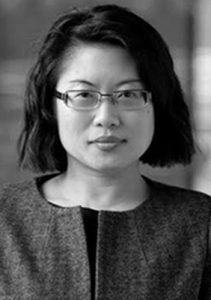
Topic: What really matters today and in the future – From physical to digital to autonomous
Abstract: In my talk, I will introduce some challenges and opportunities faced by society and industry, comment on the transformation of our world, and why resource sustainability and machine economy will take central stage in this transition.
Professor Lenny Koh is the Founder and Director of the Advanced Resource Efficiency Centre (AREC) at The University of Sheffield. Her work contributes to advancing the understanding and resolution of complex supply chain using interdisciplinary approaches crossing supply chain management and information systems domains across industry. Her research is world leading and is recognised for its scientific novelty and has generated significant impacts for society, government and industry from manufacturing to services. This includes the pioneering of digital Cloud based tools (SCEnAT suites) that support transformation of supply chain towards resource efficiency and sustainability; and infusing and digitising supply chain life cycle thinking across sectors, technologies and systems. She is an advisor and on the Board of diverse organisations, such as a Board member of the Sustainability Partnership and BSI on sustainability/resource efficiency. She has established strategic partnerships with industry leaders from automotive to digital sectors on supply chain sustainability and digital transformation, and work closely with the Transport Systems Catapult on intelligent mobility.
Prof. Dr.-Ing. Holger Kohl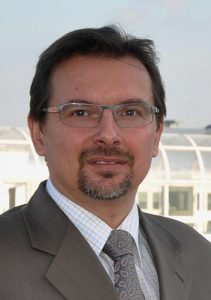
Topic: Modular Shopfloor-IT – Intelligent Process Management of Customer-Specific Products
Customized processes have long become reality in traditional mass production. It is not uncommon to see production runs of 50.000 system products with an annual repetition rate of 1.4. Many clients not only call for custom product properties, but also additional tests to be conducted and recorded, making for production processes that need to be customized for every individual order. In the past, the changes to products and processes had to be laboriously integrated into every single system involved. The keynote will address a modular shop floor IT that makes such changes substantially easier and has been developed by Fraunhofer IPK with partners from the automotive and plant engineering industries. The solution links up with the machine controllers to enable their interconnection, e.g. with the superordinate order management system. To introduce changes in a production process, all it needs is for the shop floor IT modules to be recombined, which leads to a much more efficient way to produce customer specific products.
Holger Kohl is Professor for Sustainable Corporate Development at the Technical University of Berlin and Director of the Division Corporate Management at Fraunhofer Institute for Production Systems and Design Technology (IPK), Berlin/Germany. He studied Business Engineering at the Technical University of Berlin and at the Haas School of Business at the University of California, Berkeley. In 1999 Prof. Kohl joined the Division Corporate Management at Fraunhofer IPK. Since then he has initiated and conducted several national and international projects in the fields of Intelligent Manufacturing, Manufacturing Control, Innovation and Intellectual Capital as well as in Benchmarking and Business Process Reengineering and was responsible for their realisation. Beside projects all over Europe, Prof. Kohl managed large scale projects in Brazil, Indonesia, Vietnam, Malaysia, UAE, Egypt, China, etc. His primary research interests are in the areas of planning of R&D institutes, evaluation of innovation systems, sustainable manufacturing, benchmarking studies, development of knowledge management systems, management and optimization of business processes, factory planning and factory management with a strong focus on Industry 4.0.
Andreas Oroszi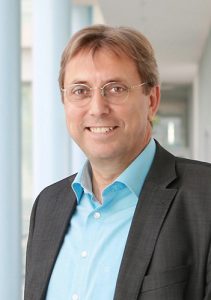
Topic: Digitalization at Festo – Our way in digital transformation
Abstract: As an innovative company and technology leader in industrial automation, Festo is embracing digitalization and Industry 4.0. This is underpinned by having an increasing product portfolio of automation components that are compatible with the Internet of Things as well as specially developed digital products and services. The objective is clear: creating added value for customers and increase efficiency and productivity. In addition, Festo is striving to provide customers with digital support as a part of its customer-oriented „Digital Customer Journey“ by offering digital tools for selection, configuration and digital support for the entire life cycle of a system. Festo has not only started undertaking numerous activities related to digitalization and Industry 4.0 for its customers, it is also doing so for its own value creation chain and business processes. As a part of the digital transformation, Festo pays particular attention to the human factors as well as Training 4.0. New digital technology requires a different way of working together, as well as new concepts for basic and further education.
Andreas Oroszi is Senior Vice President at Festo AG & Co. KG, a world leading company in industrial automation with headquarters in Esslingen. Festo has a worldwide presence, with 61 companies, 250 branches and more than 20,000 employees. In his long career with Festo he has been an automation technology and technical management expert, and as part of those roles he was already investigating how to integrate IT in industrial automation applications for Festo back in the 1980s. Since then he has taken up positions with responsibility for market communication, technical marketing and product services. Digitalisation of customer interfaces, digital services as well as the related development and process platform were an especially important focus topic. Since the start of 2017 Andreas Oroszi is Head of Digital Business at Festo and drives the company’s digital transformation with regard to the market opportunities for Industry 4.0. In addition, he is Joint Managing Director of Resolto Informatik GmbH, headquartered in Herford, a software company for analytics and artificial intelligence. Andreas Oroszi is author of numerous scientific publications on the subject of knowledge management, configuration and the development of complex systems. In January 2018 he became Member of the Management Board for MindSphere World Association, a worldwide user organisation for the open IoT operation system of Siemens AG.
Prof. Dr. Boris Sokolov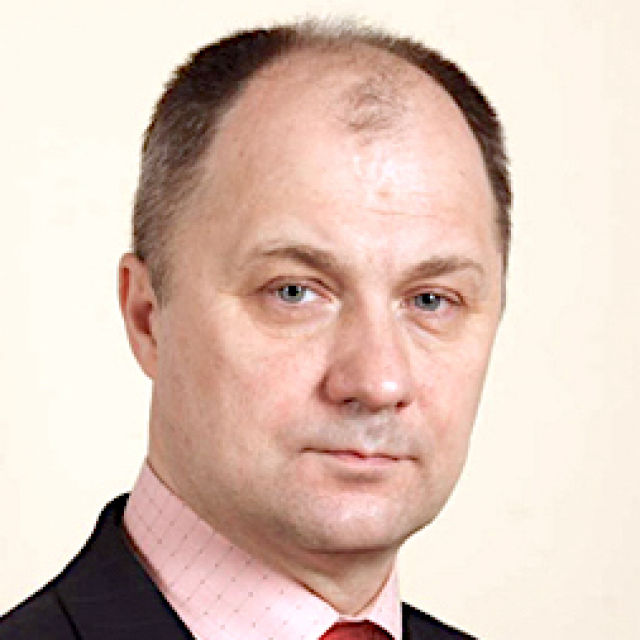
Abstract: The paper is devoted to the new methodology and the techniques of optimal control applications to planning and scheduling Industry 4.0 systems, developed with a focus on the achievements of modern control theory. The paper covers fundamental principles and recent developments in the theory and application of optimal control to job shop, flow shop, hybrid discrete-continuous systems, customized service-oriented systems such as Industry 4.0, adaptive supply chains and virtual enterprises, ship building manufactory planning and scheduling, and aerospace control. The methodological part introduces three fundamental concepts, used in the theoretical and applied research: the concept of integrated modeling and simulation of complex objects (CO), the concept of proactive control and management, and the concept of intellectual control. The paper provides information on the developed innovative multiple-modal logical-dynamics complexes, combined methods, algorithms and techniques of solution for various classes of multi-criteria operational structural and functional synthesis of CO and their control systems’ (CS) problems. The results presented were achieved via the implementation of the new applied theory of CO proactive structure dynamics monitoring and control. This theory is designed to accumulate the results of the classical control theory, operations research, artificial intelligence, as well as the system theory and the system analysis. For instance, within the framework of this theory complicated problems of Industry 4.0 systems planning and scheduling robustness analysis for severe capacity disruptions, as well as analysis of Industry 4.0 system can be performed. Moreover, the paper shows how new results of the theory of models‘ and multiple-model complexes‘ quality control can be implemented to the parametric and structure adaptations of the proposed multiple-modal logical-dynamics descriptions of Industry 4.0 systems planning and scheduling.
Prof. Dr. Tech. Sci., Boris Sokolov is Head of the Laboratory for Information Technologies in Systems Analysis and Modeling, St. Petersburg Institute of Informatics and Automation of the RAS (SPIIRAS). He is honored scientist, Laureate of the Russian Government in the field of science and technology. He published more than 400 scientific papers and led more than 50 research and engineering projects in the area of multi-disciplinary theory and applications of control theory, cyber-physical systems and cybernetics. Fields of research: control theory, basic and applied research in integrated modelling, polymodel complexes and model qualimetry, multi-criteria optimization under uncertainties, reliability theory, artificial intelligence and cybernetics, scheduling in complex technical and organizational networks, mathematical models and methods of decision-making support in complex technical-organizational systems on the base of integrated use of ground-space data.
Prof. Dr. Srinivas Talluri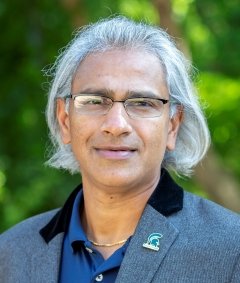
Topic: Models for Evaluating and Monitoring Efficiency of Supply Chain Network Designs
Abstract: In this talk, we develop and present a methodology that can be used to evaluate supply chain network design performance in a holistic manner by considering multiple factors simultaneously. To assist decision-makers in monitoring and improving network design efficiency, we develop a control chart that monitors an aggregated index generated by multi-factor methods, which simultaneously consider a variety of performance factors. The proposed approach can be used to trigger the re-evaluation of the network design. Our approach is useful in the domain of supply chain analytics as it provides new insights and understanding of business performance based on data and operations research/statistical methods. The clustering techniques used in conjunction with our models can help management focus on improvement strategies and resource allocations. We demonstrate the application of our models through case data gathered from a multi-national vertically integrated chemical corporation.
Sri Talluri is the Hoagland-Metzler Endowed Professor and Professor of Operations and Supply Chain Management at Michigan State University. His research interests are in the domain of supply chain risk, buyer-supplier relationships, performance evaluation, and technology management. Sri’s methodological expertise includes deterministic and stochastic modeling, game theory, empirical methods, and data envelopment analysis. He has published more than 90 articles in journals such as IIE Transactions, Journal of Operations Management, Decision Sciences, European Journal of Operational Research, IEEE Transactions on Engineering Management and others. His work is cited more than 8500 times with an h-index of 45. Sri serves as a Department Editor for IEEE Transactions on Engineering Management and as a Senior Editor for Decision Sciences Journal. He is a member of the Decision Sciences Institute and the Production and Operations Management Society.
Prof. Dr. Christopher S. Tang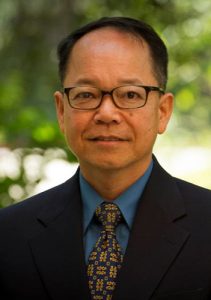
Topic: Making Supply Chain Transparent for a Better World: Information and Analysis
Abstract: Companies are gaining more supply chain visibility to reduce their supply chain risks, but few are disclosing what they know with the public. Should a firm disclose its supply chain information to the public? What are the risks and opportunities? I plan to present some recent research and case-based studies to illustrate how supply chain transparency can improve our world: planet, people and profit.
Dr. Tang is a University Distinguished Professor and the holder of the Edward W. Carter Chair in Business Administration at the UCLAAnderson School of Management. Known as a world renowned thought leader in global supply chain management, Chris consulted with companies such as Amazon, HP, Nestlé, Accenture, etc.; taught at Stanford University, UC Berkeley, Hong Kong University of Science and Technology, London Business School, etc.; and delivered over 200 keynote speeches and seminars. He has published 6 books and over 130 research articles in various leading academic journals, and written articles for Wall Street Journal, Financial Times (UK), Fortune, etc. Dr. Tang received over 15 teaching, research, and service awards, and elected as lifetime fellow by the Institute of Operations and Management Sciences (INFORMS), the Production and Operations Management Society (POMS), and the Manufacturing and Service Operations Management Society (MSOM). Currently, he serves as Editor-in-Chief for a premier journal Manufacturing & Service Operations Management (M&SOM). Chris received his B.Sc. (First class honours in Mathematics) from King’s College, London, M.A (in Statistics), M.Phil (in Administrative Science), and PhD (in Management Science) from Yale University.
Track Keynote speakers
Prof. Dr. Cihan H. Dagli (Missouri S&T, USA)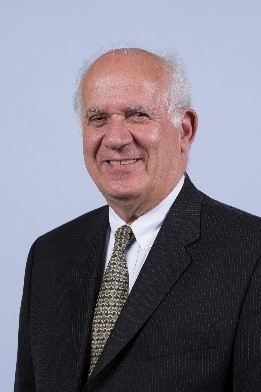
Topic: Meta-Architectures for Cyber Manufacturing
Abstract: Manufacturing systems of today are being designed for autonomy and exhibiting emergent behavior that can be visualized and production activities and facilities are evolving into cyber manufacturing systems. These systems have dynamically changing meta-architectures. Finding a series of satisfying architectures for these systems is a multi-criteria decision making problem often involving many objectives in the order of 20 or more. This creates a “Pareto Breakdown”. In this talk possible approaches that can be adapted in architecting cyber manufacturing systems architectures using evolutionary approaches, complex systems modeling and model based systems engineering and digital twins will be discussed and how industry 4.0 standard can facilitate this changed will be stressed.
Prof. Dr. Dorit S. Hochbaum (University of California, at Berkeley, USA)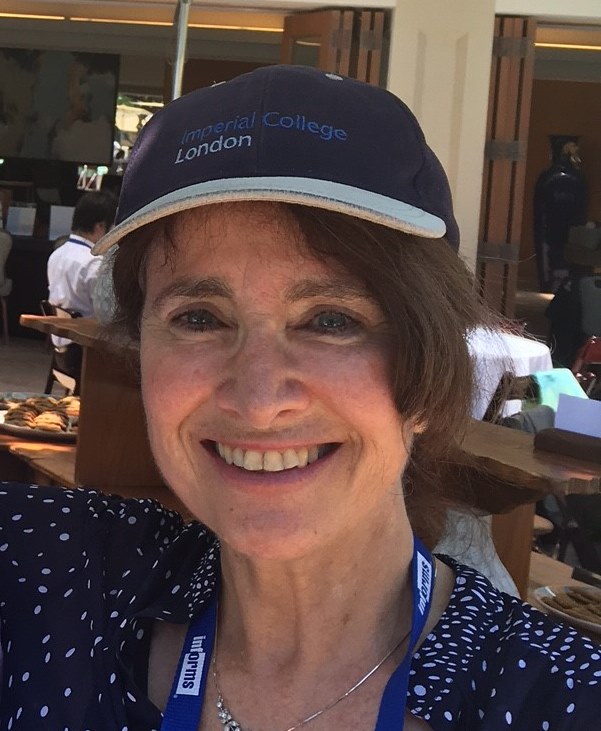
Topic: Adjacency-Clustering for Yield Prediction in Integrated Circuit Manufacturing
Abstract: We introduce here an efficient combinatorial optimization approach for problems of yield prediction and detection of manufacturing problems. The approach and its effectiveness are illustrated for the semi-conductors manufacturing industry.
Accurate yield prediction in integrated circuit manufacturing enables accurate estimation of production cost and early detection of processing problems. It is known that defects tend to be clustered and a chip is likely to be defective if its neighbors are defective. This neighborhood effect is not well captured in traditional yield modeling approaches. We propose a new yield prediction model, called adjacency-clustering which addresses, for the first time, the neighborhood effect, and delivers prediction results that are significantly better than state-of-the-art methods. Adjacency-clustering (AC) model is a form of the Markov random field minimum energy model (MRF) that is primarily known in the context of image segmentation. AC model makes novel use of MRF for identifying defect patterns that enable diagnosis of failure causes in the manufacturing process.
Prof. Dr. Erwin Pesch (University of Siegen and HHL Leipzig, Germany)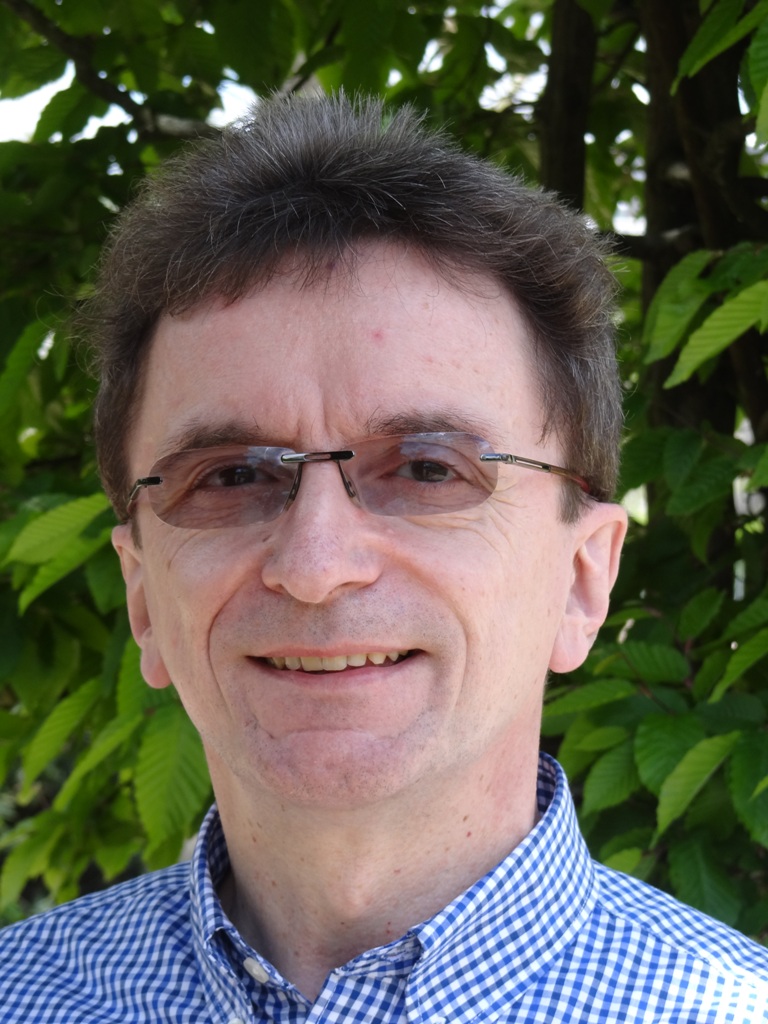
Topic: Conflict-Free Yard Crane Routing in an Automated Container Terminal
Abstract: In this talk, we focus on a container dispatching and conflict-free yard crane routing problem that arises at a storage yard in an automated, maritime container terminal. A storage yard serves as an intermediate buffer for import/export containers and exchanges containers between water- and landside of a maritime terminal. The problem is in which order and by which crane the containers are transported in order to minimize the makespan and prevent crane interferences. First, we limit our attention to incoming containers only that are positioned by twin cranes. Containers are assigned to the cranes according to different policies. We show that some cases are polynomially solvable. Approximation algorithms with guaranteed absolute and relative deviations from the optimum are devised for others. The results translate for the case of outgoing containers. In the second part we consider two rail mounted gantry cranes of different sizes, with the possibility to cross each other, that perform inbound, outbound and housekeeping requests. We solve this problem to optimality by a branch-and-cut approach that decomposes the problem into two problem classes and connects them via logic-based Benders constraints. We assess the quality of our solution method in a computational study.
Prof. Dr. Subhash C. Sarin (Virginia Tech, USA) 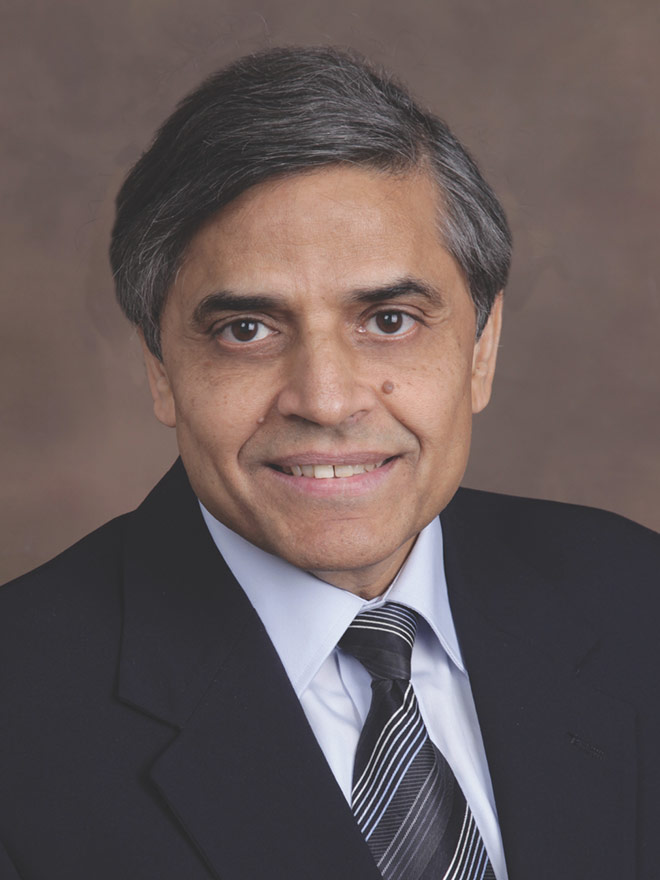
Topic: Lot Streaming
Abstract: Lot streaming is a technique that accelerates the flow of products through a production system by splitting their production lots into sublots and then processing the sublots simultaneously over the machines, thereby reducing the work-in-process and cycle time. It has been applied for the processing of jobs in a variety of machine configurations, including flow shops, job shops, open shops, parallel machines, and hybrid flow shops, even though the bulk of studies have been devoted to flow shop scheduling problems. We will present a review of work reported in this area, and also, present the use of lot streaming in a two-stage assembly environment in which the sub-assemblies produced by vendors at the first stage are assembled into products at the second stage, which constitutes some of the latest work reported in this area. Some new results and applications of lot streaming in mass customization and wafer fabrication will also be presented.
Prof. Dr. Manoj K. Tiwari (IIT Kharagpur, India) 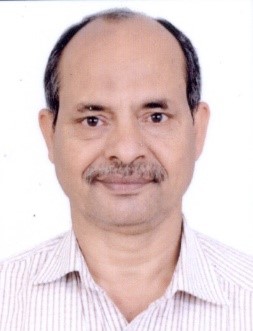
Topic: Manufacturing Analytics
Abstract: Massive growth in several disruptive and emerging technologies like data analytics, high-performance computing, cyber-security, internet of things, and artificial intelligence have led to the transformation of manufacturing system from energy-oriented to data-driven production in the recent past. Industry 4.0 and Factory of Future are the emerging standards which manufacturing and logistics systems are aiming to observe by deploying many IoT based technologies and several data science and machine learning tools. Manufacturing analytics helps in making an efficient production system by gaining productivity along with cost minimization and quality products. The applications of data analytics are categorized in several domains of manufacturing systems such as engineering design, decision support systems, shop floor control, fault detection, machine failures, predictive maintenance, and cyber-security. To envision the goal of the fourth industrial revolution, real-time data needs to be collected by upgrading the manufacturing units with emerging technologies. In collecting real-time data, numerous IoT platforms such as Amazon Web Service, Azure IoT Suite, Bosch IoT Suite, and SAP Cloud Platform are being listed as cyber-physical infrastructural resources. Manufacturing analytics envision the manufacturing future beyond shop floor automation by deploying digital twins, sensors based technologies, and data science to achieve optimized manufacturing units and it delivers the personalized and small batch products.
